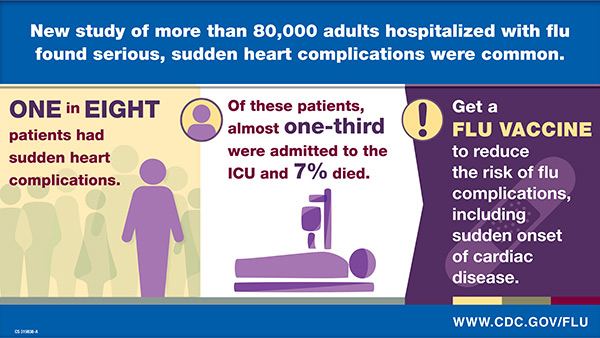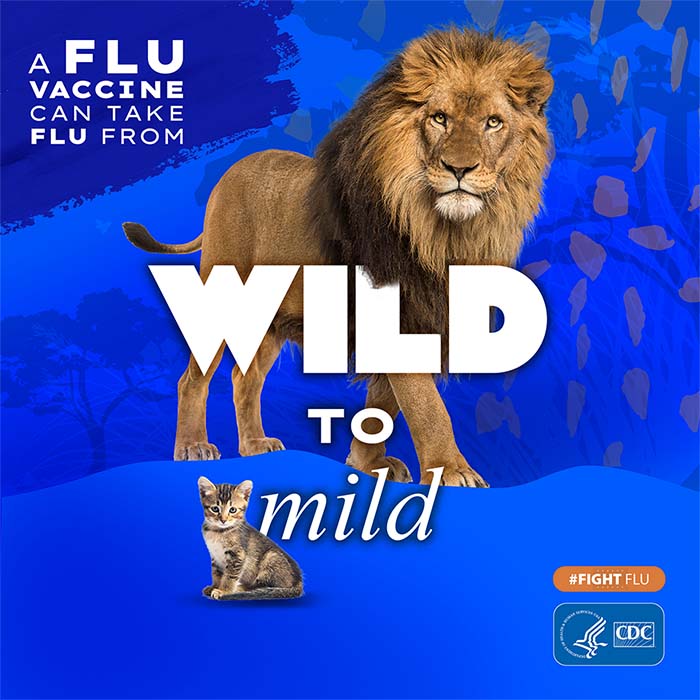CDC Study Finds Sudden, Serious Cardiac Events Common in Adults Hospitalized with Flu
August 25, 2020 – A CDC study published today that looked at more than 80,000 U.S. adults hospitalized with flu over eight flu seasons (2010-11 through 2017-18) found that sudden, serious heart complications were common and occurred in one out of every eight patients (~12% of patients).
The study looked at a range of sudden heart complications called “acute cardiac events” that resulted in the following:
- damage to the heart muscle,
- inflammation of the heart muscle,
- fluid or inflammation of the sac surrounding the heart, or
- weakening of the pumping function of the heart.
The most common acute cardiac events reported in the study were acute heart failure and acute ischemic heart disease. Acute heart failure is the sudden inability of the heart to pump enough blood to meet the body’s demands, while acute ischemic heart disease is a term that describes heart problems caused by narrowed or blocked heart arteries.
Previous studies have looked at the relationship between influenza infection and heart attacks or heart failure, but few large, population-based studies have examined the frequency of acute cardiac events associated with laboratory confirmed influenza infection. Therefore, this study contributes new and important findings to the scientific body of evidence on this topic.
The study also assessed risk factors for acute cardiac events. Older age, tobacco use, underlying cardiac disease, diabetes, and kidney disease were significantly associated with higher risk of acute heart failure and acute ischemic heart disease in adults hospitalized with laboratory-confirmed influenza infection.
Although vaccinated people had a lower risk of acute ischemic heart disease and acute heart failure, this study was not designed to assess flu vaccine effectiveness. However, other studies support the importance of influenza vaccines for people with underlying chronic conditions.
The study is subject to several limitations. There was likely under-detection of influenza cases, as flu testing was based on practitioner orders. Also, acute cardiac events were identified by ICD discharge codes and may be subject to misclassification bias.
CDC recommends that everyone 6 months and older get a flu vaccine this and every flu season. Flu vaccination is always considered important for people who are at high risk of developing serious flu complications, including people with heart disease. Flu shots are approved for use in people with heart disease. People with heart disease should not receive the live attenuated influenza vaccine (LAIV, also known as the nasal spray flu vaccine). However, any intramuscular flu shot (i.e., any inactivated or recombinant influenza vaccine) can be given.
This study is available for viewing online via the Annals of Internal Medicine website.

